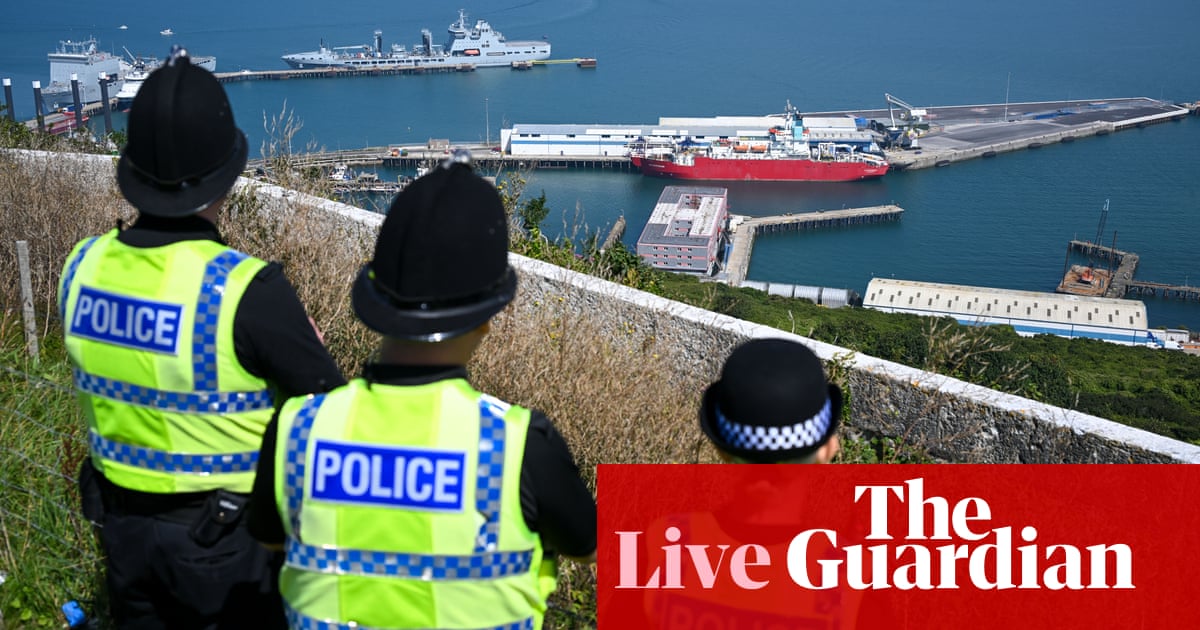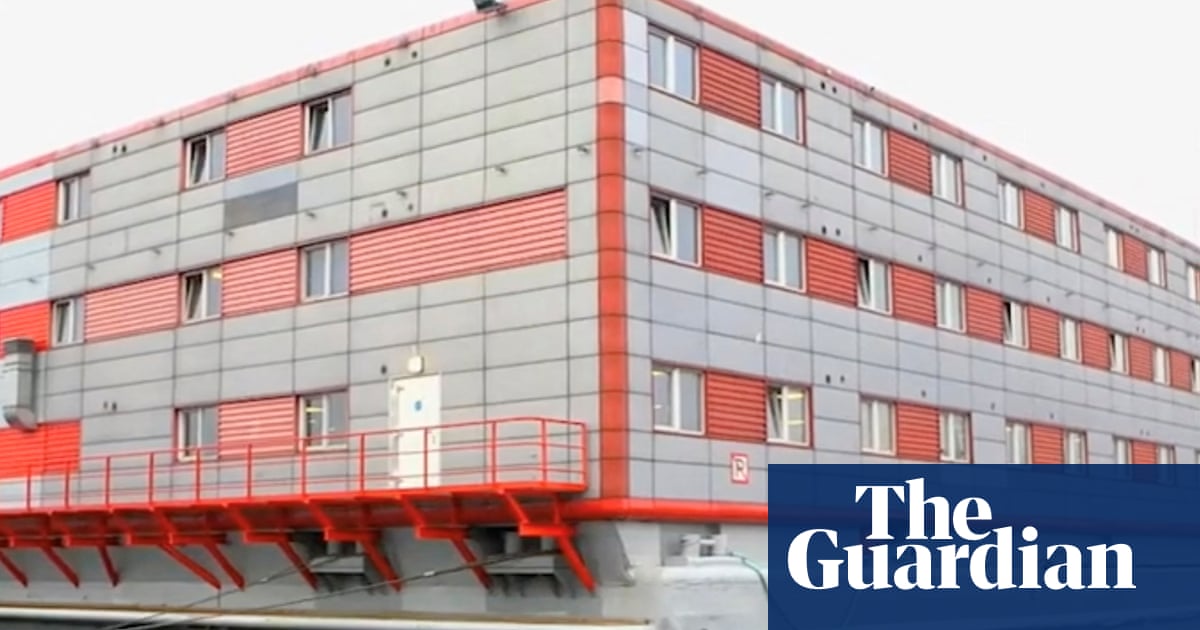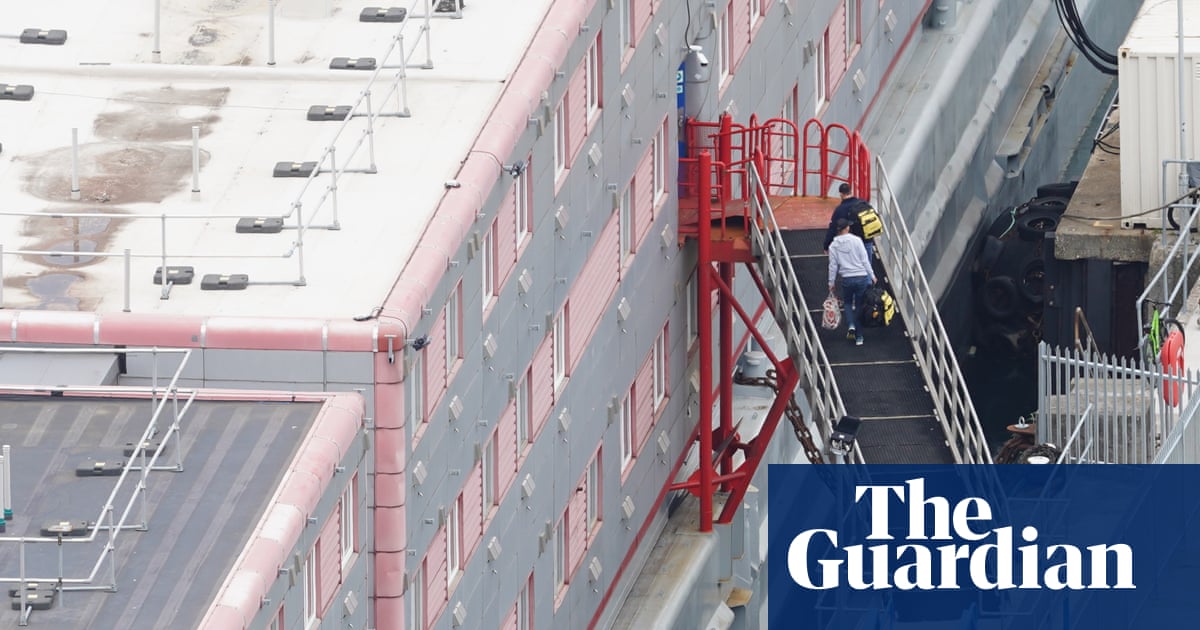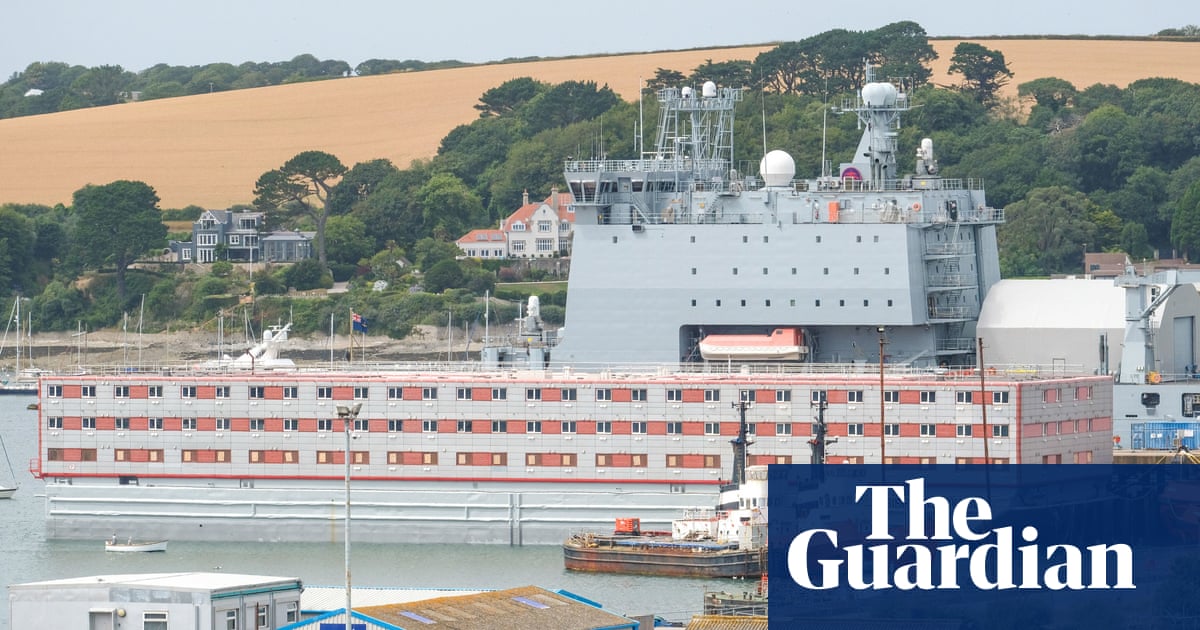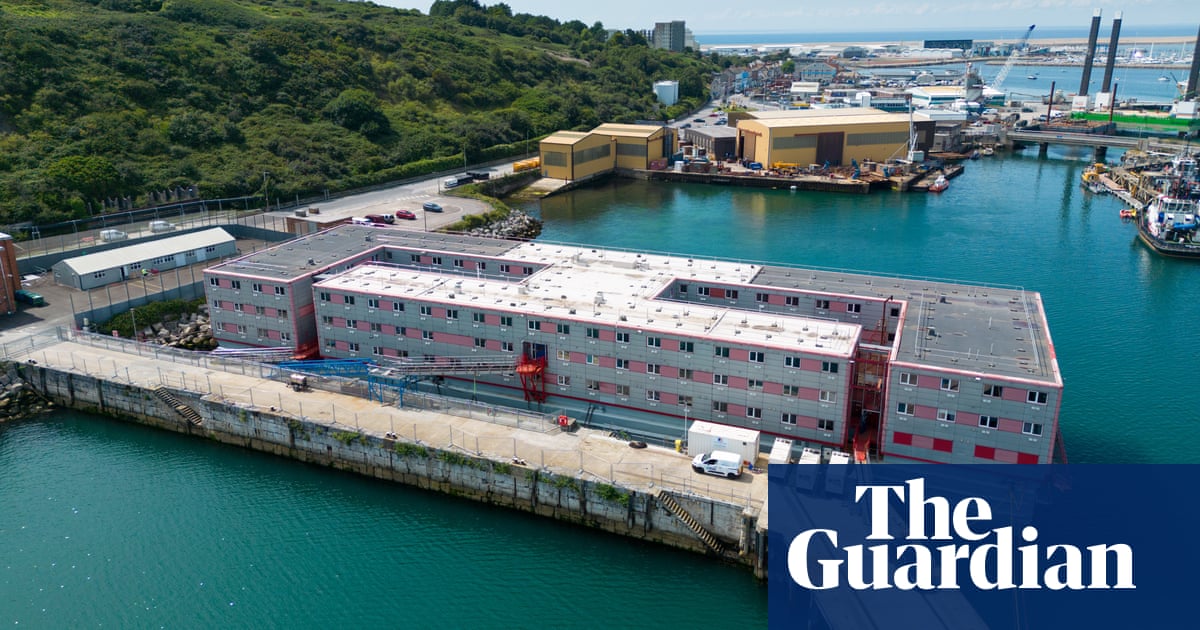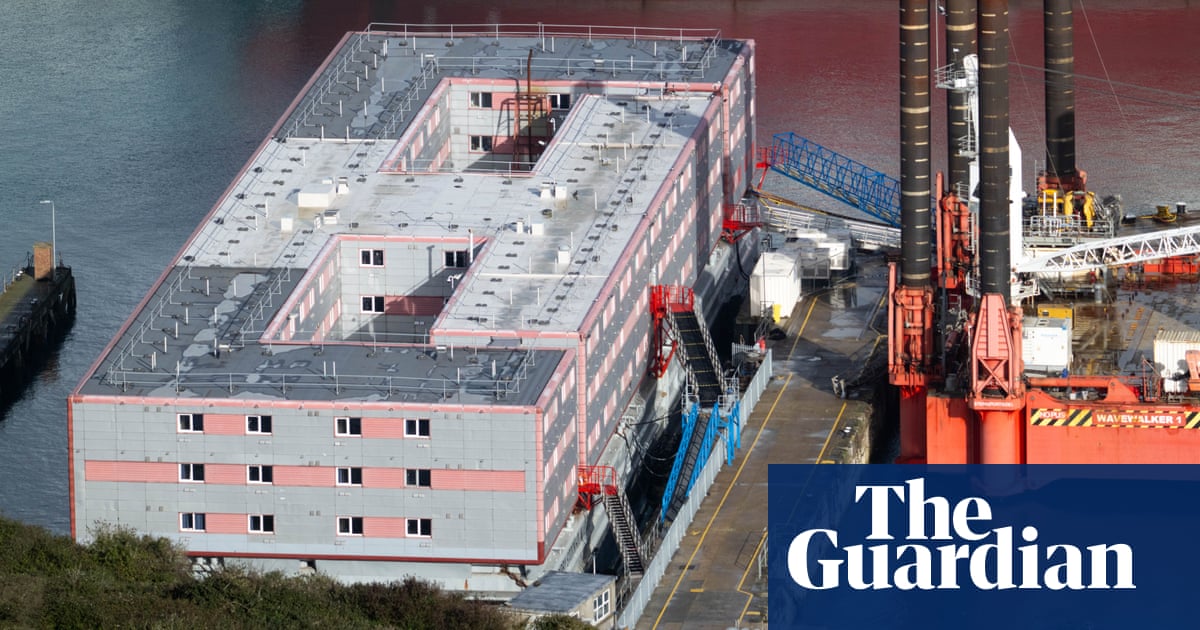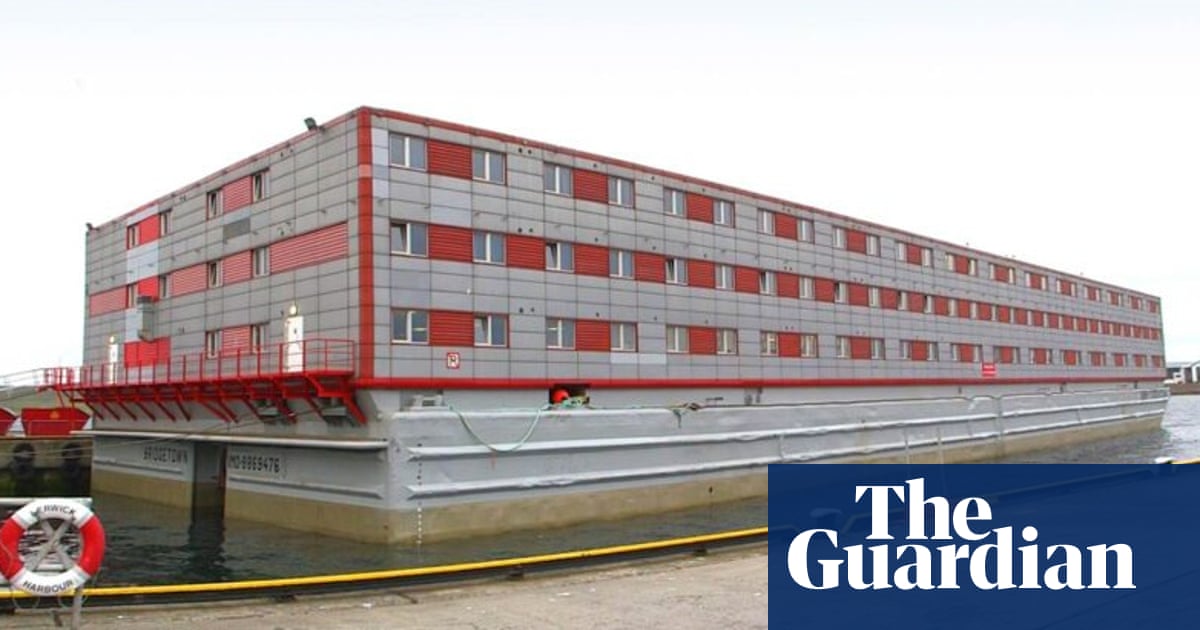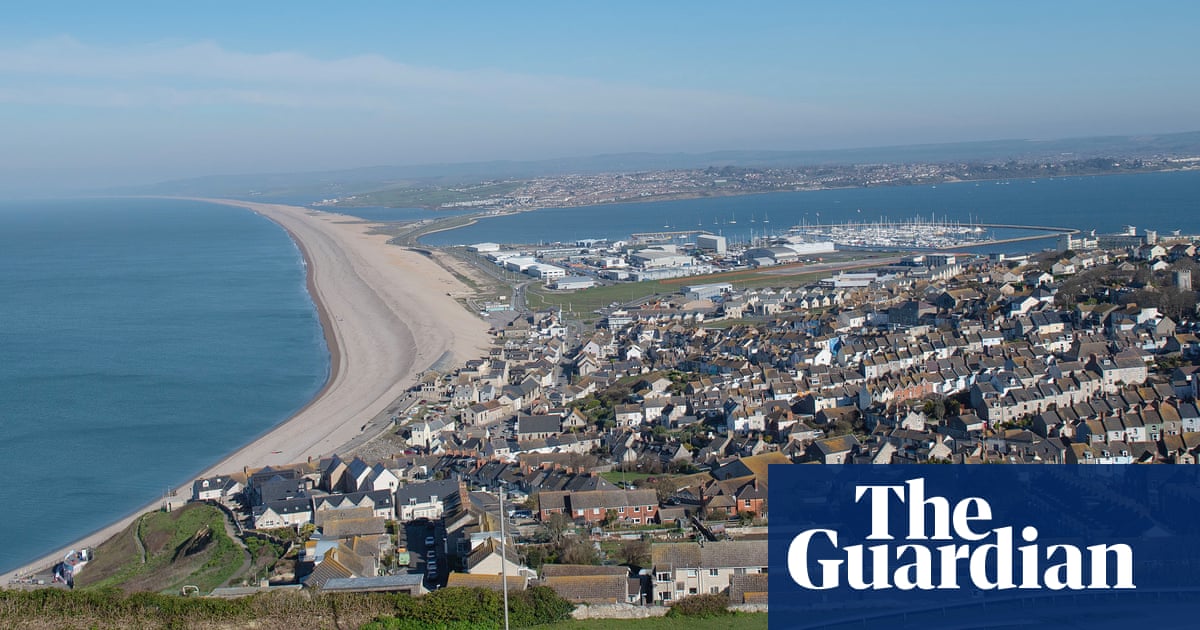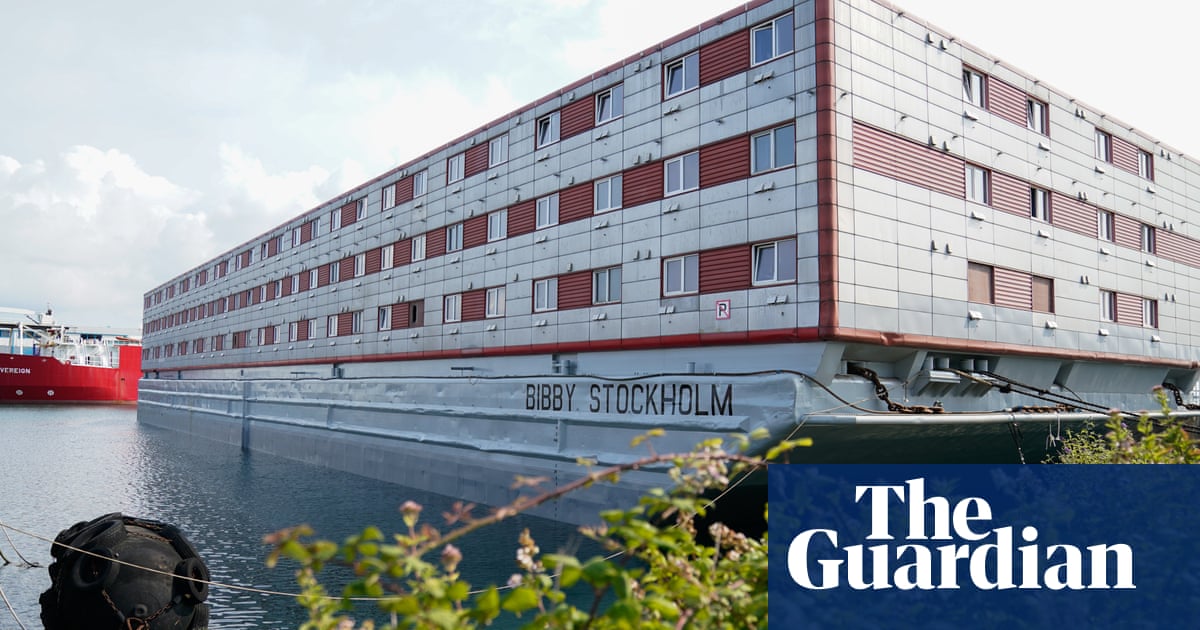
Home Office contractors were told that potentially deadly legionella bacteria had been detected on the Bibby Stockholm hours after asylum seekers were taken onboard the barge.
Dorset council flagged the legionella test results to the barge contractors on the day they received them, Monday 7 August, raising questions about why the evacuation of 39 people from the barge took four days.
Initially the government indicated that further tests needed to be carried out before it could be determined how serious a risk the levels of legionella posed.
UK Health Security Agency sources have confirmed that the only legionella test results the Home Office, Dorset council, UKHSA and Home Office contractors operating the barge had at the time the Home Office decided to disembark the residents were those made available to Dorset council on Monday 7 August. Further tests on levels of legionella bacteria in the water on the Bibby Stockholm are ongoing.
On Sunday evening, Dorset council confirmed to the Guardian that it raised the alarm about legionella with the Home Office contractors on the same day it received the legionella test results.
It is unclear when the contractors told the Home Office about the results.
Portland councillor Carralyn Parkes, who is pursuing a legal action against the Home Office about the barge, acting in a personal capacity, questioned the delay in evacuating asylum seekers from the barge.
“The legionella test results came back on Monday. Why were the asylum seekers not moved off the barge immediately? It’s all a bit chaotic. Hasty decisions have put people on the barge at risk.”
The first asylum seekers went on to the Bibby Stockholm barge moored in Portland on the same day legionella there was confirmed.
A spokesperson for Dorset council said that officials flagged the legionella test results to the barge contractors on the day they received them. But the asylum seekers were left on the barge until Friday 11 August.
Legionella poses a potential danger to health if it is found in water pipes that have not been used for some time. The asylum seekers were the first to take showers on the barge after a considerable time during which it had not been used, completely unaware that they were at risk of inhaling the potentially lethal bacteria.
Home Office sources said there was a delay in the contractors passing the information on to them. The contractors initially declined to comment and referred the Guardian to the Home Office, which is ultimately responsible for the barge and for the asylum seekers accommodated there.
While environmental health officers visited the barge to take further samples on 9 August, the results of these tests are not yet known.
Dorset council did not alert UKHSA to its concerns about Monday’s test results until the evening of 9 August.
On the morning of the 10 August, UKHSA organised an incident management meeting. Attendees included representatives of the NHS, Dorset council and the Home Office. It was recommended that no more people should be transferred on to the barge while a risk assessment was conducted. These recommendations were later confirmed in writing to the Home Office. A second incident management meeting and risk assessment took place that afternoon.
A Dorset council spokesperson said: “Dorset council received the preliminary results of samples taken on 25 July 2023 on 7 August. Dorset council’s environmental health team informed the operator (contractors CTM and Landry and Kling) as the responsible body for the barge, employed by the Home Office, of the sample results on 7 August. As their contractor, it is their responsibility to keep the Home Office informed.
“The council followed technical guidance on what to do when a positive sample is received. The contractor was advised of the situation and further inspection made to obtain further information and additional samples, and the UKHSA then contacted.”
Stephen Kinnock, the shadow immigration minister, said: “The government has very serious questions to answer on this, particularly around how much they knew about the risk or actual presence of legionella when they chose to press ahead with sending asylum seekers to the barge.”
Brian Dikoff of Migrants Organise, who is supporting some of the asylum seekers evacuated from the barge, said: “What happened is indicative of both the government and the Home Office’s complete inability to carry out this plan, and their complete lack of respect for the lives of the asylum seekers and local community.
“Many were naturally confused, stressed and angry by the whole thing. Many of the asylum seekers are too afraid to drink the tap water at the hotel they were evacuated to. This means they are spending their £9-a-week allowances to buy water.”
A spokesperson for the barge sub-contractors Landry & Kling said: “Landry & Kling are associates of Corporate Travel Management who are working closely with local authorities to ensure housing solutions are safe and appropriate for service users. Landry & Kling, along with project partners, have followed all written recommendations made by Dorset council environmental health.”
A Home Office spokesperson said: “The health and welfare of asylum seekers remains of our utmost priority. All asylum seekers accommodated on the Bibby Stockholm have been disembarked as a precaution and moved to alternative accommodation. The Home Office and our contractors are following all protocol and advice from Dorset council’s environmental health team, UK Health Security Agency and Dorset NHS who we are working closely with.”




